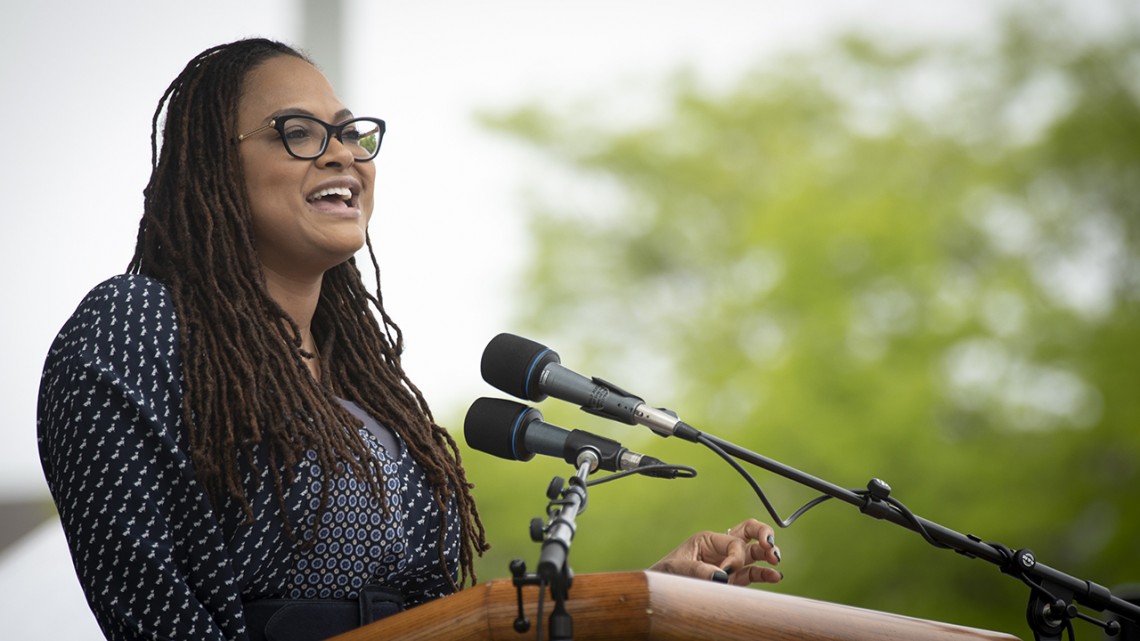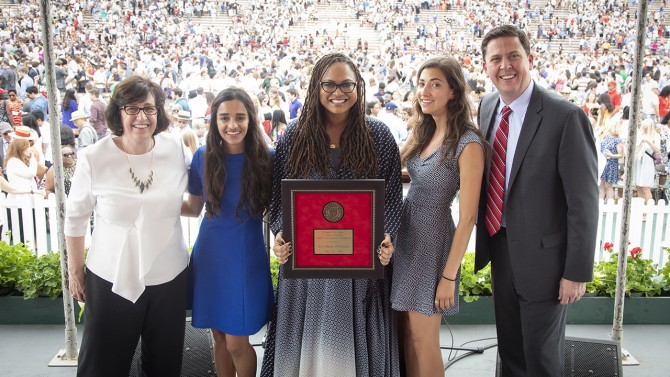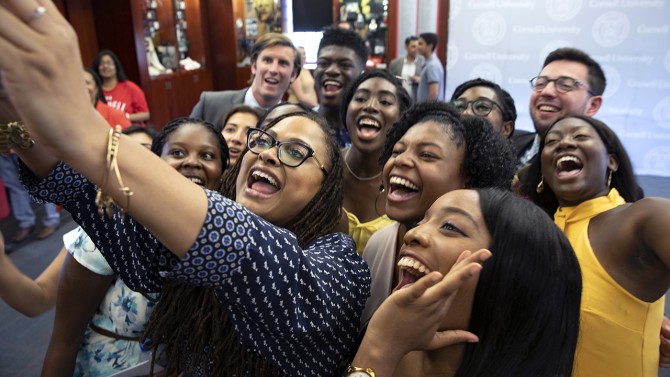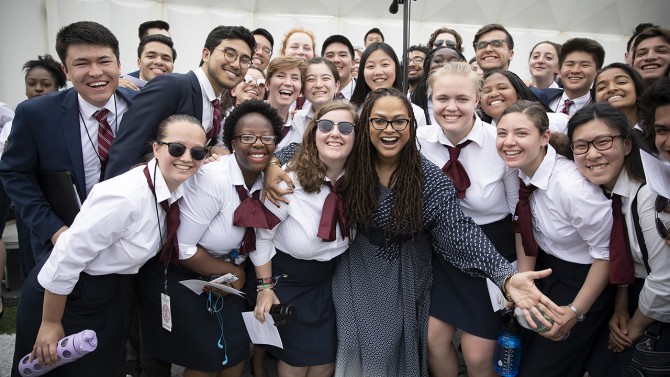
Filmmaker and activist Ava DuVernay delivers the 2018 Senior Convocation Address May 26 at Schoellkopf Stadium.
Filmmaker DuVernay to grads: ‘Declare yourself deeply’
By Susan Kelley
Groundbreaking filmmaker, producer and activist Ava DuVernay encouraged the Class of 2018 to prepare for their futures by declaring who they are and what matters to them today, in her 2018 Senior Convocation Address May 26 at Schoellkopf Stadium.
“Understand where you are within yourself, right now, graduates. Before you go out in the world, map yourself. Track yourself,” she said. “… What will be your story? Your movie? You’re the director. You’re free to experience and interpret this life from this moment on as you decide, as you declare.”
Through her films DuVernay tells the stories of women and people of color, and she also has made efforts to reshape the film industry to offer them more access to it.
Her trip to Ithaca from Los Angeles reminded her how far her life now is from what she imagined for herself when she graduated from UCLA 23 years ago, majoring in English and African-American studies. During her journey, several people recognized her and thanked her for her work, she said.
“I never dreamed of a trip like this, a journey across the country where folks would recognize some of my work in small and kind ways,” she said, “a day when I’d be asked to stand before you in this prestigious place, a day when I’d be working in film as a creator of visions, with my voice, what I wanted to say, embedded in images, telling stories that people remember somehow. I never declared that a day like this could or would exist.”
DuVernay is the first woman of color to receive an Oscar nomination for best picture – for her 2014 film, “Selma,” which focuses on the 1965 civil rights march from Selma to Montgomery, Alabama. She’s the first woman of color to win best director at the Sundance Film Festival, to be nominated for best director in the Golden Globes and to direct a $100 million movie – “A Wrinkle in Time.” DuVernay also earned an Oscar nomination for best documentary for “13th,” which traces America’s racial history from the 13th Amendment to the Constitution, banning slavery, to today’s crisis of mass incarceration.
As a student of history, she said, what gives her hope in these uncertain times is the knowledge that there’s precedent for everything that everyone is experiencing, personally, culturally, socially; history repeats itself. Cornell’s Africana Studies and Research Center was a target of arson in the 1970s. Months ago, racially motivated attacks occurred on campus, she said.
“History is our guide and our leash. We can decide which,” she said. “Will we be informed by the past and shift and recalibrate and mature and blossom? Or will we simply repeat and retreat to what has already occurred? We must declare which.”
It’s imperative for the graduates to consider the past as they stand on the edge of their future, she said. They are graduating at “a vibrant time,” she said, a time that will long be remembered, a time when society is changing quickly.
“There are cracks and fissures in the surface of everything we thought we once knew. We can see that as brokenness or we can see it as room, as space, to create anew,” she said. “This is a time when good people become better, I believe that. You can choose heartbreak, despondency, fear, silence, or you can choose to declare yourself and respond accordingly.”
She encouraged the graduates to declare themselves, using a language of their own making, to say who they are and what they mean.
As an example, she called herself a black woman filmmaker from Compton, California, who never attended film school – and a teller of stories, an optimist, “a believer in the ethical bend of the human heart, a believer in the mind’s disgust at fraud and its appetite for truth, a believer in the ferocity of beauty.”
She came to Ithaca because she wanted to welcome the graduates into this new phase of their lives, she said. “I wanted to ask you to clarify and amplify your voice to declare yourself deeply. I look forward to watching.”
Media Contact
Get Cornell news delivered right to your inbox.
Subscribe






